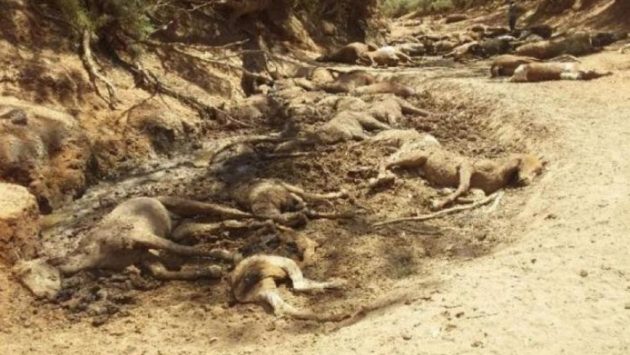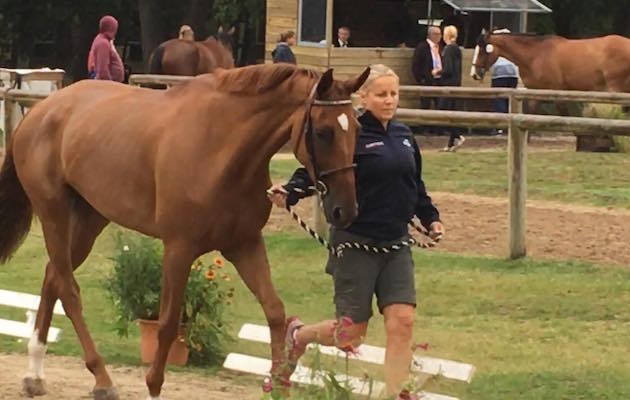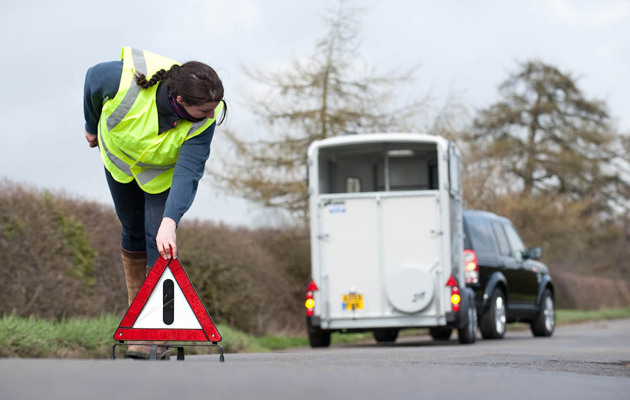
Mass deaths of wild horses have been reported in Central Australia following a record 12-day run of temperatures in excess of 42 C.
The Ltyentye Arpurte Aboriginal ranger team discovered the bodies of 40 brumbies at a dry waterhole near the remote town of Santa Teresa last week.
A further 50 “dying” horses had to be destroyed by the Central Land Council (CLC) — which represents the Aboriginal people of Central Australia — at the Apwerte Uyerreme site.
“Horses and other feral animals are dying of thirst and hunger because many reliable water sources, such as Apwerte Uyerreme, have dried up in the current heatwave and areas overpopulated by feral animals suffer erosion and vegetation loss,” a CLC statement said, adding that the horse carcasses also posed a risk of fouling water holes that other wildlife depended on.
The CLC said it is “very concerned” about the threat to animals posed by the extreme weather and that it is also consulting with another remote community over an emergency cull of around 120 horses, donkeys and camels that were in “too poor a condition” for mustering or transport.
CLC director David Ross said it is able to go ahead with aerial culls “without consent if necessary” in emergency situations.
“With climate change well and truly upon us, we expect these emergencies to occur with increasing frequency and nobody is truly prepared and resourced to respond to them,” he said.
Mr Ross added that the CLC was helping traditional owners to develop management plans and that the Northern Territories government had committed funds to help over the next two years.
The plans include ways to keep down the numbers of horses, donkeys and camels and “allow traditional owners to muster and sell healthy animals where they can find a market”.
The CLC added that a meeting has been scheduled for next week to discuss how the carcasses in Ltyentye Arpurte could be removed and further mass deaths avoided.
Continues below…

Owner’s warning after horse suffers ‘terrifying’ heatstroke
The rider wants to raise awareness of the condition

Warning after broken-down lorry owners left ‘utterly helpless’ in the heat
Owners are being urged to make sure they have water on board and to think about whether they need to

Subscribe to Horse & Hound magazine today – and enjoy unlimited website access all year round
The Australian Bureau of Meteorology has reported that the current heatwave is unprecedented in terms of its scale and duration.
January is likely to be the warmest month on record for mean maximum and minimum temperatures in Queensland, New South Wales and the Northern Territories.
The highest recorded temperature of this summer was at Marble Bar in Western Australia, where the mercury hit 49.3 C on 27 December.
The weather has also impacted the health of other wildlife, with ABC reporting that up to 2,500 camels had been culled in the Goldfields region as they gathered at water sources.
For all the latest news analysis, competition reports, interviews, features and much more, don’t miss Horse & Hound magazine, on sale every Thursday.





